Don’t let opiate addiction rob you of one more day. Sierra Tucson can provide you with the personalized treatment you need so that you can live the healthier life you deserve. Learn more about our comprehensive services in Tucson, Arizona.
Learn More About Opiate Addiction Treatment
Learn more about opiate addiction treatment at Sierra Tucson
An addiction to substances can be one of the most troubling problems that a person can face. Once an addiction has developed, individuals inevitably find that it rapidly begins to consume all aspects of their lives. Opiates, also referred to as opioids, are a class of substances that work by depressing the body’s central nervous system, inducing feelings of extreme relaxation and euphoria. Because of the pleasurable effects of this type of substance, many users quickly become entrapped in the desire and compulsion to continuously abuse them. There are a number of different types of opiates that a person can become addicted to, including prescription opiates (e.g., Vicodin, Percocet, OxyContin, codeine, and morphine) and the illegal derivative, heroin. Regardless of the type of opiate that a person develops an addiction to, the ramifications of such abuse can be far-reaching and long-lasting, which is why it is imperative that treatment is sought and implemented as soon as possible.
At Sierra Tucson, the best rehab center for opiate abuse, we fully recognize how difficult and intimidating the journey to obtaining sobriety can seem, and so we have developed specialized treatment that strives to make the process one that is as comfortable as possible. By engaging in our comprehensive addiction treatment, individuals who are struggling with an addiction to opiates can develop the skills needed to not only achieve sobriety, but to maintain life-long recovery.
How to Help a Loved One
Helping a loved one get treatment for opiate addiction
Upon discovering that a family member or loved one has developed a problem with abusing opiates, the result can be the experiencing of a number of different emotions. It can be difficult for non-drug users to understand why someone would allow themselves to engage in behaviors that have the potential to lead to countless negative repercussions. If you have a family member or loved one who is struggling with an addiction to opiates, you are likely more than aware of the fact that they need treatment, but you may be feeling unsure as to what you can do in order to expedite the process. Consider the following:
- Learn about opiates. Become familiar with the various symptoms and effects of this substance so that you can effectively present your loved one with your concerns.
- Enlist the help and support of others in your loved one’s life so that you can come together as a unified group when confronting your loved one with the concerns you have.
- Refrain from lecturing your loved one. Anticipate that their initial response to the idea of getting treatment will likely be hostile, but remain patient and calmly encouraging.
- Research various treatment options that are available that may best suit the needs your loved one has.
- Offer to go with your loved one to any appointments that are scheduled for evaluations or tours of various treatment centers.
- Once your loved one has engaged in treatment, be an active part of their therapeutic process. The more involved a person’s family and friends are, the more successful their treatment outcomes are likely to be.
Why Consider Treatment
Why consider our opiate addiction treatment center
Chronic use of opioid substances can render individuals susceptible to experiencing any number of detrimental consequences. This drug is known to elicit rapid deterioration of a user’s physical and emotional health, while also slowly destroying their overall sense of wellbeing. Psychologically, the abuse of opiates can lead to ever-increasing feelings of depression, anxiety, and/or panic. Physically, opioid abuse can result in users suffering from bone pain, negative central nervous system arousal, chronic nausea, and a decrease in heart rate and blood pressure. Furthermore, prolonged use of opiates can cause individuals to experience irreversibly cognitive impairment, hindering one’s ability to form memories and learn and retain new information. Occupational failure can ensue, financial distress can arise, and relationships can fall apart. Fortunately, there are many treatment options available that can greatly reduce the likelihood that an individual addicted to opiates will experience such detriments.
Types of Treatment
Types of opiate addiction treatment offered at Sierra Tucson
As an internationally known and respected treatment provider of medical, therapeutic, and experiential services, our rehab is pleased to offer state of the art treatment for a wide range of behavioral health concerns. Through the integration of evidence-based practices and integrative therapies, our treatment center prides itself on being a leading provider of services that are effective in treating addictions and other behavioral health problems. Holistic and individualized treatment is cornerstone to the best care offered at our rehab, and is provided by a staff of qualified and experienced. Our treatment center’s primary goal is to deliver services in such a manner that all who come to us for treatment will benefit from our services and resume the pursuit of a healthy and productive future.
Sierra Tucson, a premier opiate addiction treatment center includes a 15-bed behavioral health inpatient unit, and a 124-bed behavioral health residential treatment center, both of which are situated on the same campus. Residents who require immediate stabilization due to the presence of psychiatric concerns or those who are in need of medical detoxification services can receive these interventions prior to engaging in our rehab’s residential care. When residents present to our treatment center with opiates in their systems, the first step in their treatment will be to undergo the medical detox services offered at inpatient treatment so that their bodies can become rid of the toxic substance. This period of detoxification is monitored by medical personnel in order to ensure that individuals remain safe and as comfortable as possible during the process. Residents will also engage in a number of therapeutic interventions during their time in our inpatient program. Following detox and completion of treatment at our inpatient unit, residents will then engage in comprehensive treatment at our rehab center’s behavioral health residential treatment center.
Treatment for substance abuse concerns, including the abuse of opiates, is delivered through our treatment center’s Addictions and Co-Occurring Disorder Program. Offered within our behavioral health residential treatment center, services supplied in this treatment plan are designed to elicit the most favorable outcomes for all residents. Our reputation as a leading drug addiction rehab center stems from our clinical excellence and the compassionate, premier care that we afford to everyone who seeks our services. Our holistic approach to treatment respects the dignity of each individual while offering a therapeutic environment that is fully conducive to healing of the mind, body, and spirit. Treatment focuses on addressing each resident’s presenting problems, as well as underlying issues that exacerbate their struggles. It is our belief that, as residents gain new communication skills and learn to build healthy relationships, they can make sound decisions for a healthy quality of life and form deeper connections with others.
The types of services you receive will be determined by your treatment team. Using a biopsychosocial and spiritual approach to care, residents engaged in the Addictions and Co-Occurring Disorder treatment plan can partake in the following treatment methods, of which are outlined in each resident’s individualized treatment plan, as well as in our rehab’s daily treatment schedules:
Medication management: When individuals are struggling with the presence of a co-occurring disorder in addition to their addiction to opiates, the implementation of psychotropic medications may be incorporated into their overall plan of care at our treatment center. The need for such medications, however, is always determined on a case-by-case basis. Residents who are engaged in the Addictions and Co-Occurring Disorder Program will have the opportunity to meet with either a psychiatrist or qualified physician at a minimum of once per week so that any medications that have been prescribed can be monitored for therapeutic effectiveness and any necessary changes can be made.
Individual therapy: Master’s level clinicians and/or licensed psychologists at our opiate addiction rehab offer individual therapy sessions with residents several times per week depending on the treatment modality that is being used. All residents are guaranteed, however, that a minimum of one individual session will take place each week. Each resident’s therapist will be assigned to them depending on the identified presenting concerns, the therapeutic approach that will be used in order to effectively address those concerns, and the specific training that the therapist possesses. These sessions occur in a confidential, one-to-one setting where the resident is afforded the opportunity to discuss their progress in treatment, address any concerns that may arise, and process various feelings they are experiencing.
Group therapy: At the time that residents are admitted into the Addictions and Co-Occurring Disorder treatment plan at our rehab center, they are assigned to a small group of peers, of whom are engaged in the same plan. This group will meet together for therapy sessions four times per week. In addition to serving as a general process group, topics that are covered during these group sessions may include, but are not limited to:
- Relapse prevention
- Identifying feelings of shame in order to move to a place of resilience
- Anger management
- Healing anxiety
- Didactic lectures
- Working through grief and loss
Therapeutic Recreational Activities: In order to help residents at our rehab center build a stronger sense of self and increased confidence as they overcome their addiction to opiates, this treatment option offers residents a myriad of therapeutic activities, of which are conducted daily or on a weekly basis. A resident’s participation in such activities will be outlined in their treatment plan and may include the following:
- Expressive art
- Psychodrama
- Adventure therapy (including a ropes course and rock wall)
- Equine therapy
Additional services for purchase: In order to best care for the needs of those who are working through an addiction to opiates and any co-occurring conditions, our rehab is proud to offer a number of additional services through an innovative approach to treatment. Special time is set aside for selected individual appointments which will be outlined in one’s treatment plan in order to address individualized needs. Such services may include, but are not limited to:
- Mindfulness meditation
- Acupuncture
- Personal training
- Massage
- Salon
- Psychological testing
- Biofeedback
- Somato-Emotional Release (SER) massage
- EMDR (Eye Movement Desensitization and Reprocessing) SE (Somatic Experiencing® Therapy) therapies are offered when deemed necessary based upon an assessment conducted by a psychiatrist
- Sensorimotor Psychotherapy
Furthermore, residents engaged in the care delivered through the Addictions and Co-Occurring Disorder treatment plan at our rehab center will be provided with educational lectures and will participate in 12-step meetings. Each day will end on a positive note by allowing residents to gather together and reflect through a Gifts and Blessings Ceremony.
Should a resident require stabilization services while engaged in our opiate abuse rehab center’s residential treatment, they are able to partake in the services supplied by our Behavioral Health Inpatient Unit before returning to residential treatment. The staff of professionals conducts an ongoing assessment of each resident’s progress and needs and offers assistance in making this transition smooth so as to continue the process of healing with as little disruption as possible.
Continuing Care
Continuing care and levels of treatment for opiate addiction
Sierra Tucson’s method for providing the best, all-encompassing care for every resident who comes for treatment includes thorough discharge planning and continuing care services that are second-to-none. Once a residents engages in services to treat an addiction to opiates and co-occurring concerns at our rehab, a comprehensive continued care plan is devised so that they can remain successful once treatment is complete. Those partaking in the services meet with continued care staff to assess each individual’s needs and plan for discharge. Those engaged in the residential treatment at our rehab center meet with the same continued care staff and regional outreach specialists and partake in lectures and one-on-one planning sessions to ensure quality referrals and to establish any follow-up appointments that may be required once they have been discharged.
Furthermore, residents exiting the residential treatment, along with their family members, can benefit from The Connections Program. This treatment plan includes 12-month-long case management services that are in place to offer ongoing and substantial support to former residents. A representative from this plan contacts residents 48 hours after they are discharged and is available to assist these individuals in seeking and receiving the additional services they need in order to remain successful in the process of healing and recovery.
Lastly, former residents can take part in the Alumni Relations affiliated with our opiate addiction rehab. These services include groups offered through outpatient centers, of which are located across the United States.
If you or a loved one wishes to receive the superior care that has improved the lives of many individuals who have struggled with chemical dependency and co-occurring conditions, look no further than our treatment center. The life you have envisioned can begin here.













